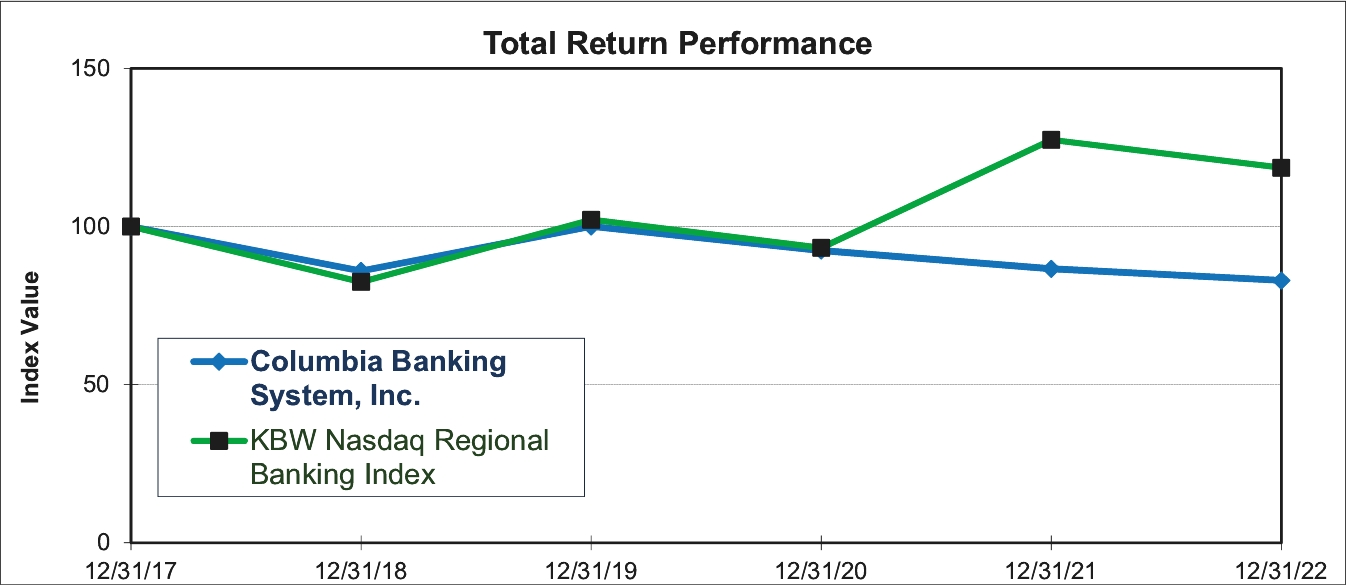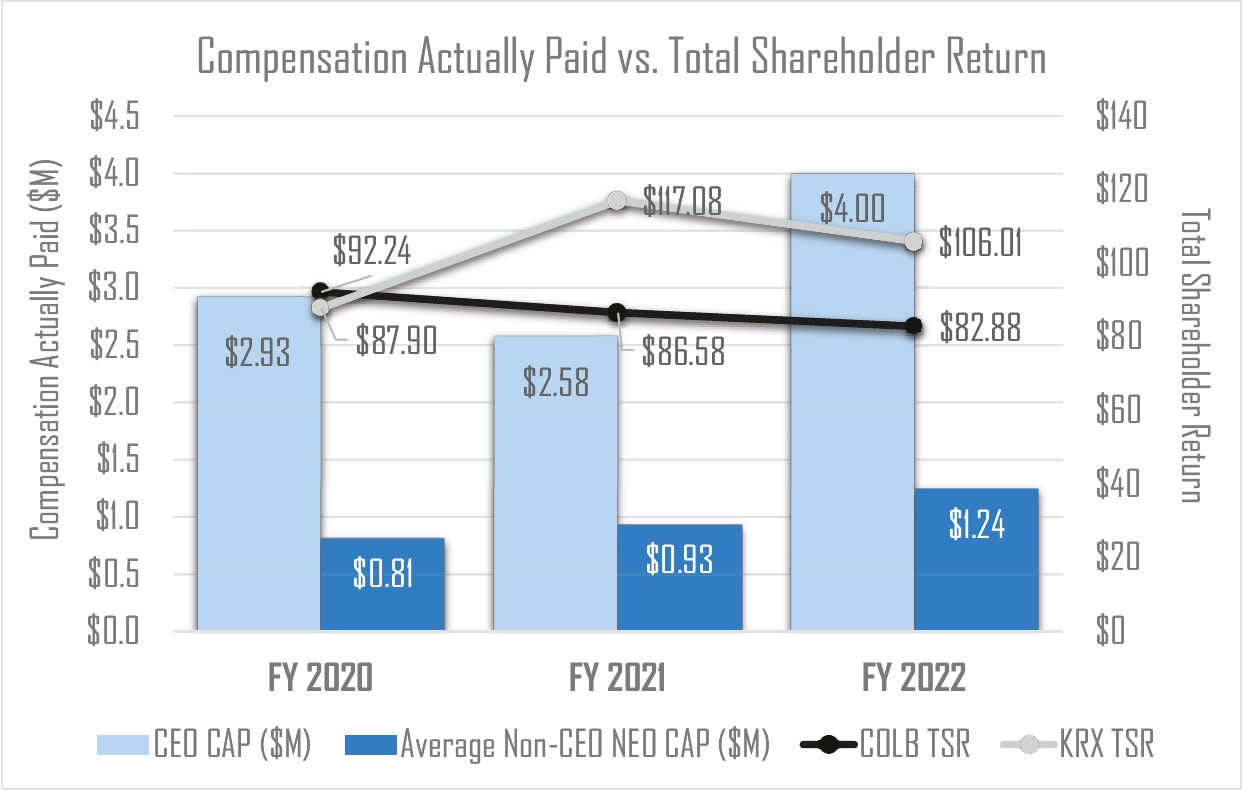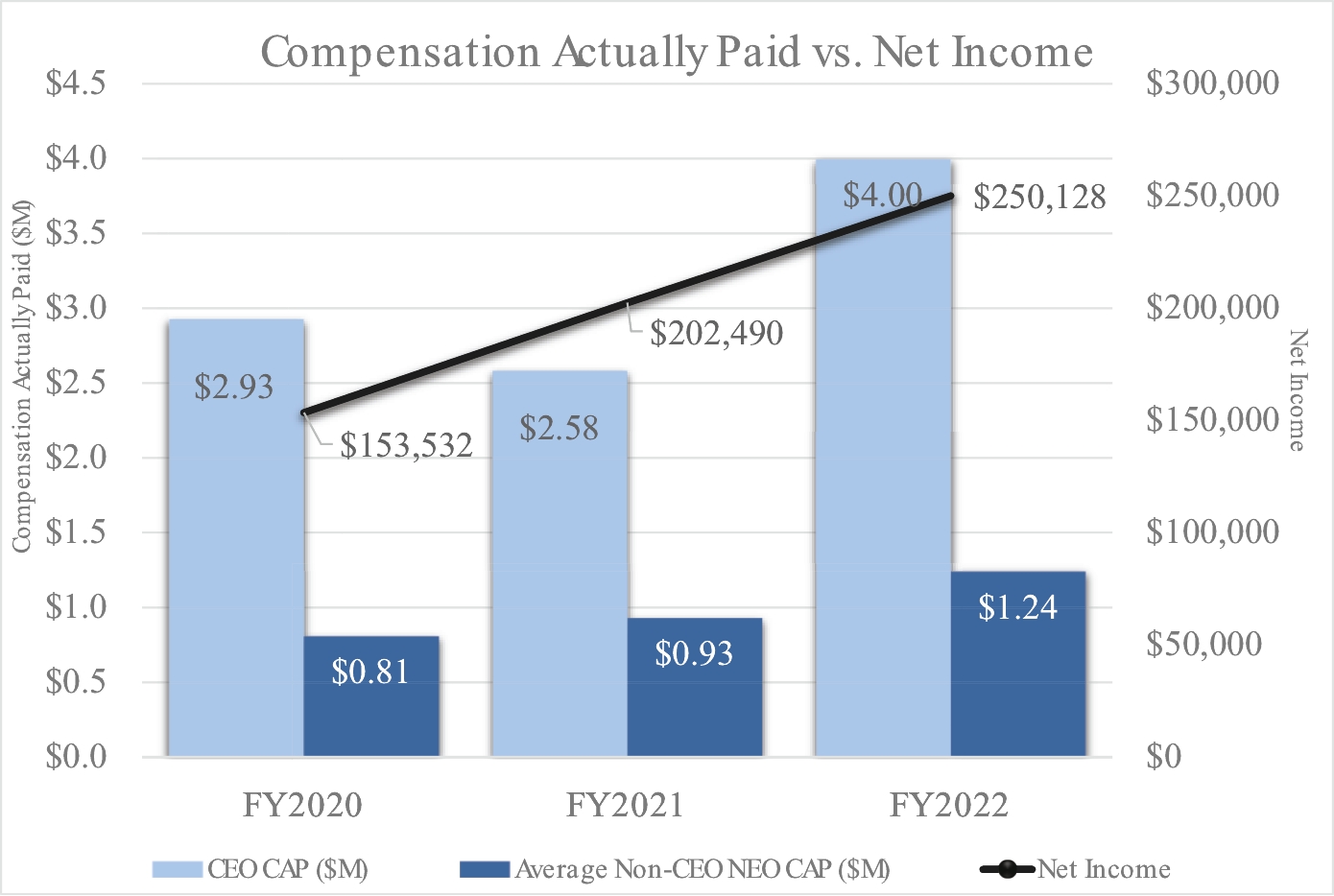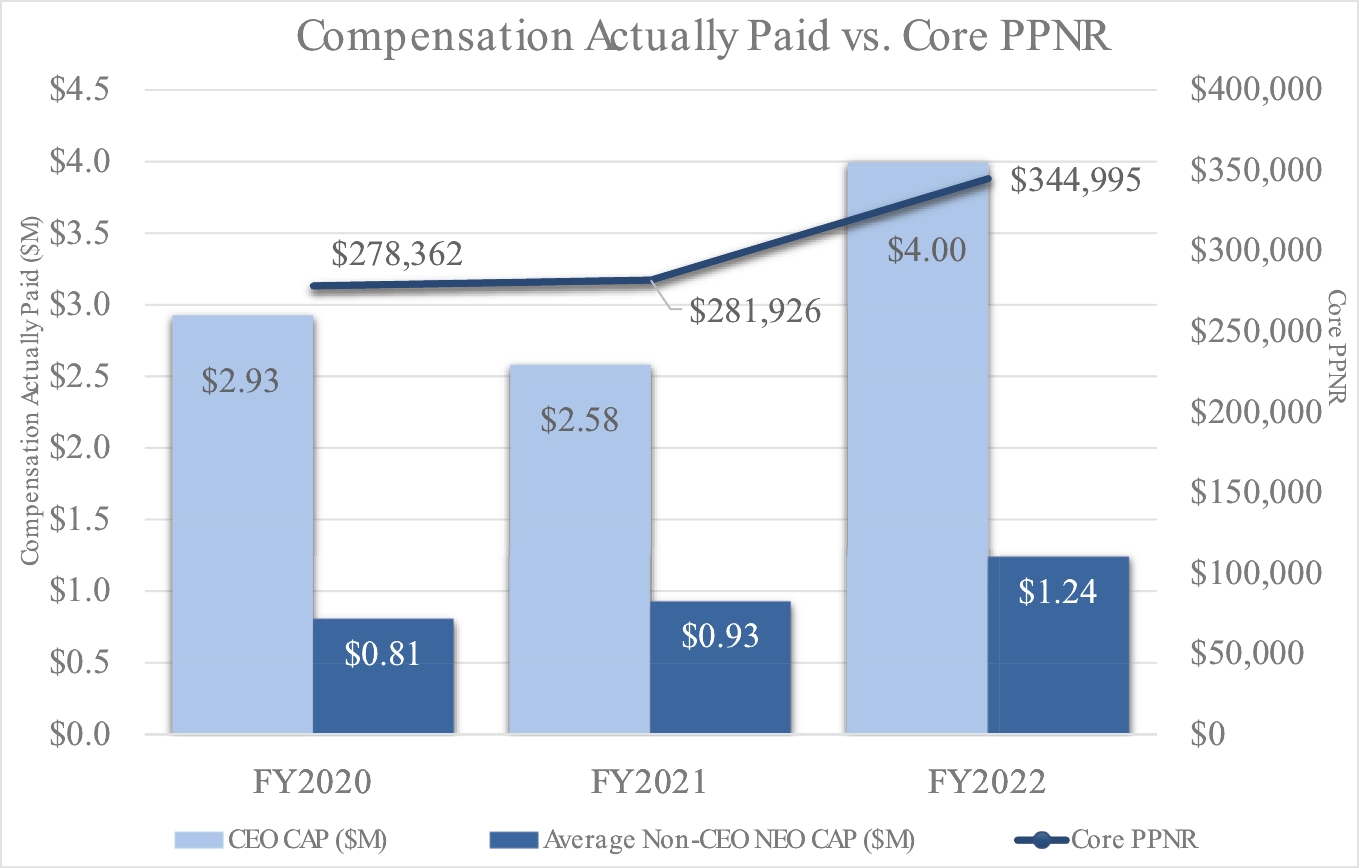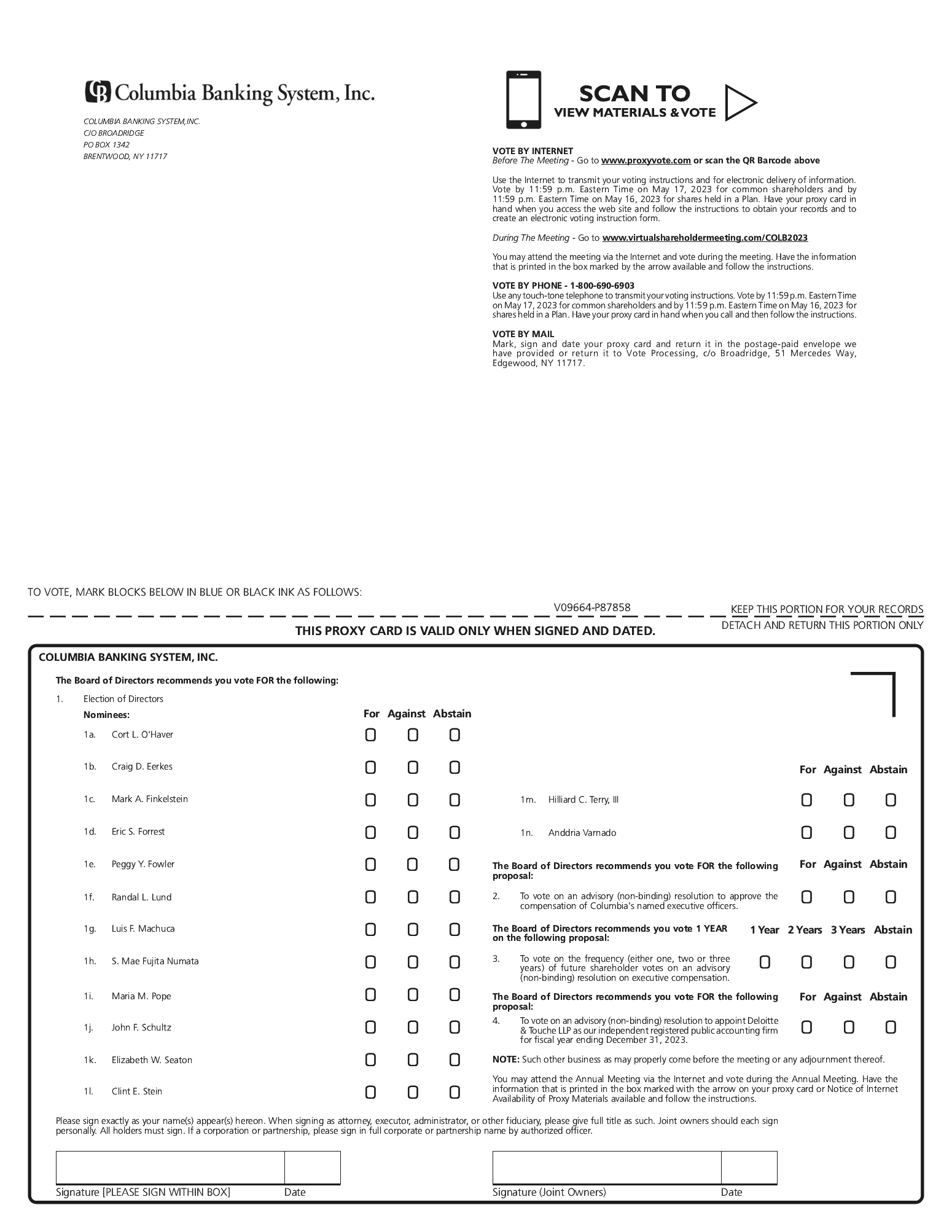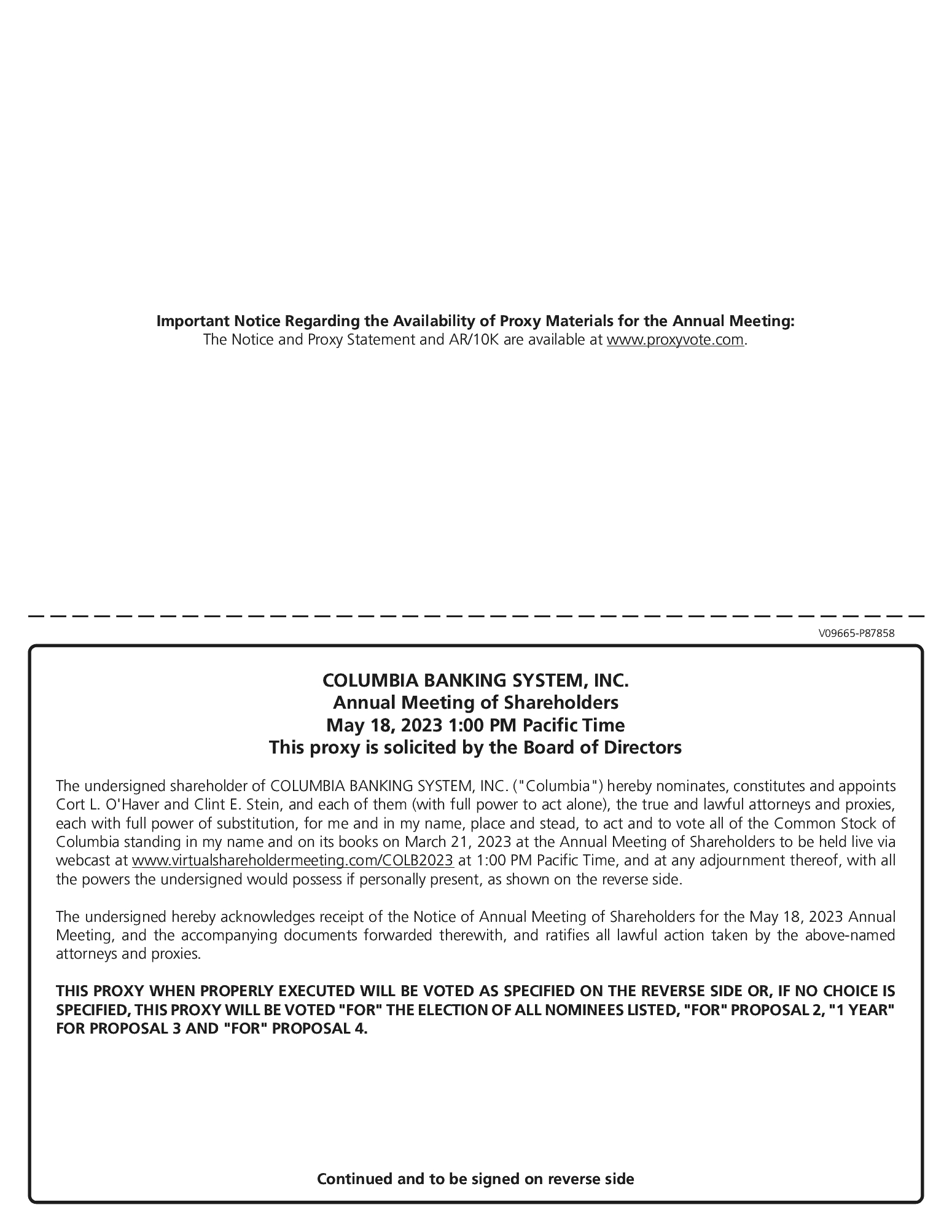INFORMATION ABOUT EXECUTIVE OFFICERS
The following is information as of the Record Date of March 21, 2023,
about our executive officers who are not directors or nominees for director of Columbia, including employment history for the last five years. All executive officers are appointed annually and serve at the discretion of the Board.
Drew Anderson, age
37, serves as Chief Administrative Officer of Columbia and Executive Vice President, Chief Administrative Officer of Umpqua Bank, positions he has held, respectively, since March 1, 2023 and September 30, 2022. He joined Umpqua Bank in 2010
as an auditor, holding a number of increasingly senior roles including Director of Investor Relations and Chief Data Officer. He was promoted to the new position of Senior Vice President, Chief Administrative Officer of Umpqua and Umpqua Bank
in June 2021.
Kumi Yamamoto Baruffi, age 52, serves as General Counsel and Corporate Secretary of Columbia and Executive Vice President, General Counsel and Corporate Secretary of Umpqua Bank. She previously served as Executive Vice President, General Counsel and
Corporate Secretary of Columbia and Columbia Bank from September 2014 through February 2023.
Sheri Burns, age
55, serves as Chief Human Resources Officer of Columbia, and Executive Vice President, Chief Human Resources Officer of Umpqua Bank, positions she has held, respectively, since March 1, 2023 and January 2014. Previously, she served as
Executive Vice President, Chief Human Resources Officer||Chief People Officer of Umpqua since January 2014.
Aaron James Deer,
54, serves as Chief Strategy and Innovation Officer of Columbia and Executive Vice President, Chief Strategy and Innovation Officer of Umpqua Bank. He previously served as Executive Vice President, Chief Financial Officer of Columbia and
Columbia Bank from April 2020 to February 28, 2023. Prior to Columbia, he was a Managing Director and Senior Research Analyst at Piper Sandler, and a Managing Director in the equity research department of Sandler O’Neill + Partners, where he
covered West Coast financial institutions since 2007.
David Moore Devine,
age 45, serves as Chief Marketing Officer of Columbia and Executive Vice President, Chief Marketing Officer of Umpqua Bank. Prior to the Umpqua Merger, from January 2020 through February 2023, he served as Executive Vice President, Chief
Marketing and Experience Officer of Columbia and Columbia Bank, and from March 2011 through December 2019, he served as Senior Vice President and Director of Marketing.
Lisa Dow, age 63,
serves as Chief Risk Officer of Columbia and Executive Vice President, Chief Risk Officer of Umpqua Bank. Prior to the Umpqua Merger, from March 2018 through February 2023, she served as Executive Vice President, Chief Risk Officer of
Columbia and Columbia Bank. Ms. Dow joined Columbia Bank as Senior Vice President and Credit Administrator in April 2013, when Columbia acquired West Coast Bancorp, where she served as Senior Vice President and Regional Credit Administrator
& Credit Services Manager.
Ronald (Ron) Farnsworth, age 53, serves as Chief Financial Officer of Columbia and Executive Vice President, Chief Financial Officer of Umpqua Bank, positions he has held, respectively since March 1, 2023 and January 2008. Previously, he served as Executive
Vice President and Chief Financial Officer of Umpqua since January 2008 and as Principal Financial Officer of Umpqua since May 2007.
Christopher (Chris) Merrywell, age 57, serves as Senior Executive Vice President of Columbia and President of Consumer Banking of Umpqua Bank. Previously, from January 2020 through February 2023, he served as Executive Vice President, Chief
Operating Officer of Columbia and Columbia Bank, and from February 2017 to his promotion to the executive team, he served as Executive Vice President, Chief Consumer Banking Officer of Columbia Bank. He joined Columbia Bank as Director of
Wealth Management in October 2012.
Frank Namdar, age
57, serves as Chief Credit Officer of Columbia and Executive Vice President, Chief Credit Officer of Umpqua Bank, positions he has held, respectively since March 1, 2023 and November 2018. He previously served as Executive President, Chief
Credit Officer of Umpqua from November 2018 through February 2023, and as senior credit officer at Umpqua Bank from 2012 to 2018.
Torran (Tory) Nixon,
age 61, serves as Senior Executive Vice President of Columbia and President of Commercial Banking for Umpqua Bank. He previously served as President of Umpqua Bank from June 2020 through February 2023, and from April 2018 to his promotion to
President, he served as Senior Executive Vice President/Chief Banking Officer for Umpqua Bank. He previously served as Umpqua Bank’s Executive Vice President/Head of Commercial & Wealth from October 2016 to April 2018 and Executive Vice
President/Commercial Banking from November 2015 to October 2016.
Andrew Ognall, age
51, serves as Integration Management Office (IMO) General Counsel of Columbia, and Executive Vice President/IMO General Counsel of Umpqua Bank, positions he has held since March 1, 2023. Previously, he served as Executive Vice President,
General Counsel and Corporate Secretary of Umpqua and Umpqua Bank, positions he held since April 2014.






















